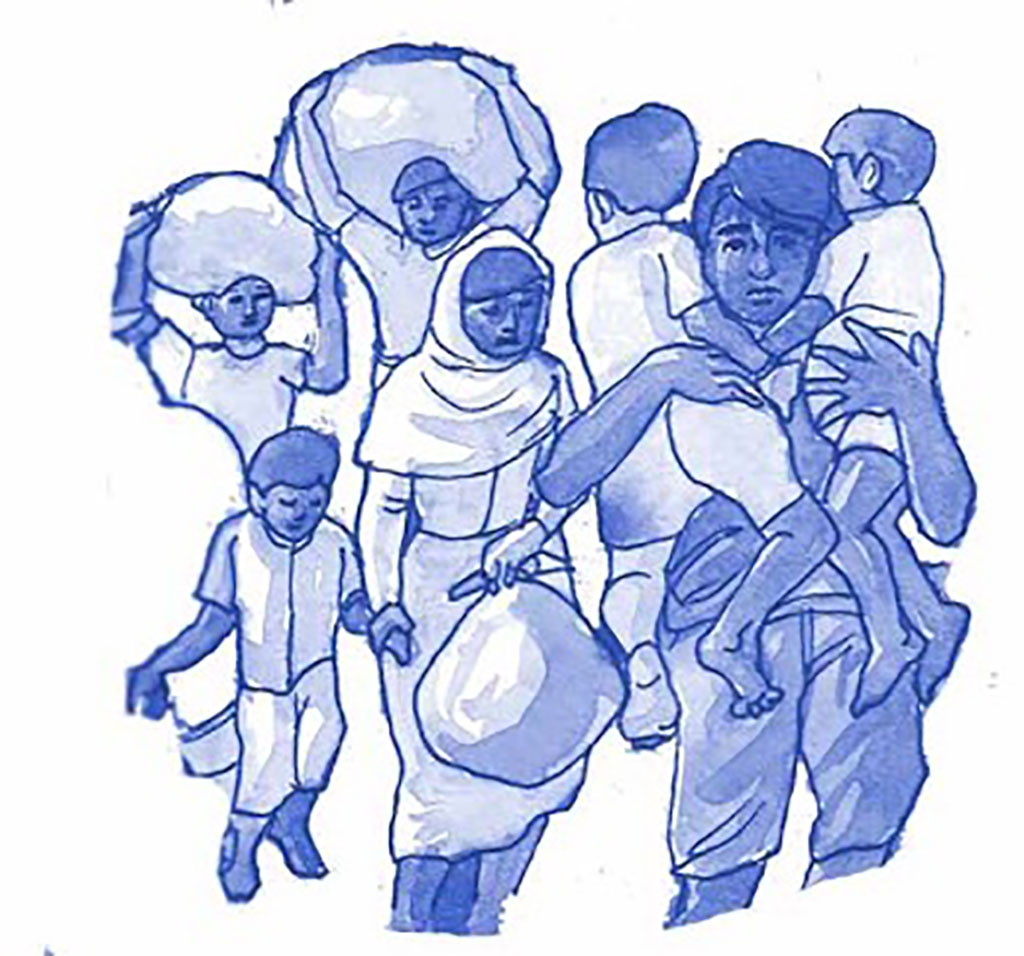PREVIEW
- What is ’genocide’?
- What are ‘crimes against humanity’?
- What are ‘war crimes’?
Educator’s notes
Also note that genocide, crimes against humanity and war crimes are all atrocity crimes described and regulated in international law and, sometimes, in national laws of some countries. These atrocity crimes have very specific definitions and very specific criteria, as described by law. For further information, see the United Nations Office on Genocide Prevention and the Responsibility to Protect 2014.
Genocide, crimes against humanity and war crimes are among the most serious crimes, known as ‘atrocity crimes’. Genocide describes the intentional destruction of a group or groups. Crimes against humanity describe systemic attacks against large groups of civilians. War crimes are acts committed during war against both civilians and combatants.
These crimes are more likely to target certain minority groups. Treaties exist that focus on the prohibition of these crimes. The Convention on the Prevention and Punishment of the Crime of Genocide focuses on genocide. The Rome Statute of the International Criminal Court focuses on genocide, crimes against humanity and war crimes.
Within these treaties, there are specific criteria that can be used to assess if these crimes have been committed. The ICC investigates the responsibility of individual perpetrators for reported crimes related to the Rome Statute. Cases can be investigated if a State Party or the UNSC requests it, or if the judges of the ICC decide that there is enough evidence to open an investigation.
Convention on the Prevention and Punishment of the Crime of Genocide (Genocide Convention, 1948)
The Genocide Convention was adopted by the UNGA in 1948 and it came into force in 1951. Myanmar signed the Genocide Convention in 1949 and acceded to it in 1956. Therefore, this treaty is legally binding in Myanmar. However, Myanmar made a reservation against article 6 of the convention. This reservation states that only national tribunals or courts may try any case of genocide in Myanmar, and no international tribunals may do so.
The Genocide Convention prohibits the following five acts:
- killing of members of a targeted group;
- causing serious bodily or mental harm on members of a targeted group;
- deliberately inflicting certain life conditions on the targeted group in order to severely harm its members;
- impose measures to prevent birth within the targeted group;
- forcibly transfer children from the targeted group to another group.
Any and all of these acts constitute genocide if they have been “committed with intent” with the purpose to “destroy, whole or in part” certain groups: “national, ethnical, racial or religious”. Anyone who commits, is complicit in, attempts, plans, or directly and publicly incites others to commit genocide may be punished. The Genocide Convention states that any perpetrator of genocide may be punished, regardless of whether they are rulers, public officials or ordinary persons.
Rome Statute of the International Criminal Court (Rome Statute, 1998)
The Rome Statute was adopted during a conference in 1998 and came into force in 2002. Myanmar has not signed, ratified or acceded to it. Therefore, this treaty is not legally binding in Myanmar.
The Rome Statute prohibits four types of atrocity crimes:
- Genocide - as defined in the Genocide Convention.
- Crimes against Humanity - these crimes are serious, large-scale attacks against civilians. These attacks may consist of murder, enslavement, torture, rape, sexual slavery, imprisonment, enforced disappearances, deportation or apartheid.
- War Crimes - these crimes are violations of any of the four Geneva Conventions, which explain the rules of war. These crimes include the use of child soldiers, killing and torture of civilians and prisoners of war, and attacks against public places such as hospitals, schools and religious sites.
Aggression - this crime was further defined in an amendment in 2010, which was adopted in 2017. This crime is about one country using armed violence against another country, for example, during an invasion, occupation or annexation.
အမျိုးသားရေးဝါဒီ
လှုပ်ရှားသွားလာနိုင်မှု
အမွေအနှစ်
ကိုလိုနီဝါဒ
